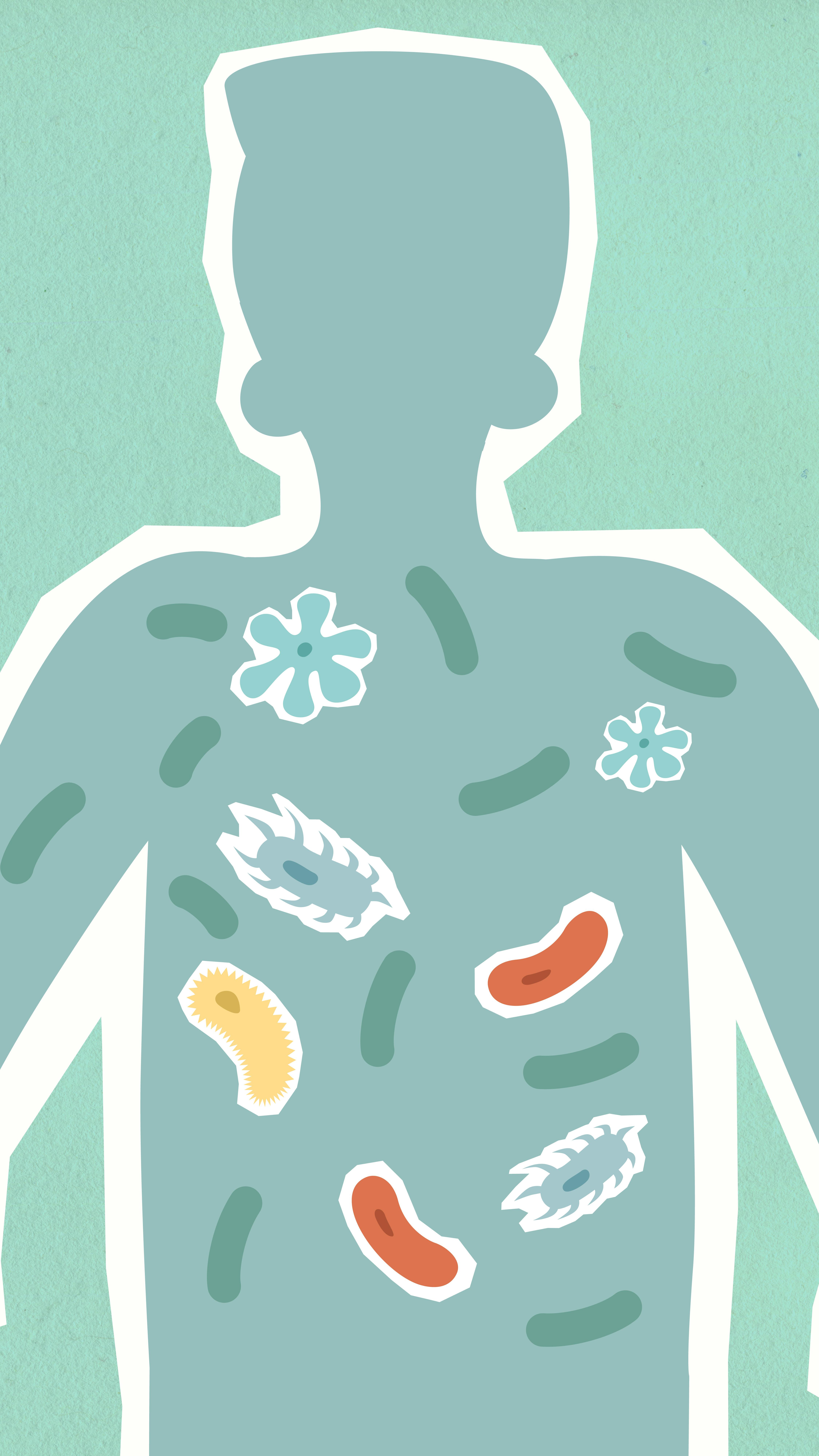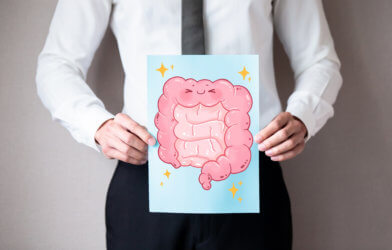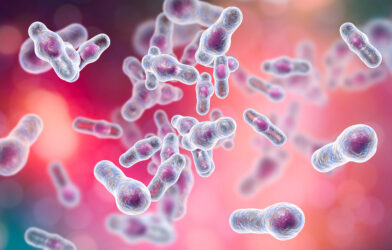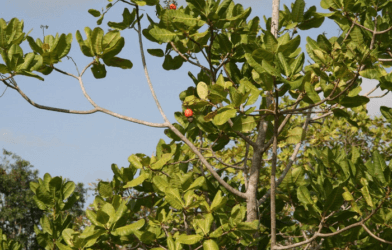Could food allergies soon be cured by drinking a fruit juice containing “good” bacteria? In experiments on mice, allergies were reversed after scientists encased a gut compound called butyrate in tiny shells to hide its foul smell and taste.
Reactions to milk, nuts, fish, wheat or other products usually cause mild symptoms, but in rare cases can be fatal. Butyrate, made by healthy microbiomes, has shown promise in lab tests, but is difficult to take orally because of its taste. Scientists say the compound smells like “dog poop and rancid butter,” which would surely turn anyone away from putting it in their mouth.
This more palatable delivery method uses a chemical cocktail called “polymeric micelles” that wrap butyrate in its core, cloaking its awfulness. In experiments, the method ended peanut allergy in lab rodents.
They were administered to the digestive systems of mice lacking either healthy gut bacteria or a properly functioning lining. After digestive juices released the butyrate in the lower gut, the inert polymers were eliminated in the feces.
The treatment restored the gut’s protective barrier and microbiome, in part by increasing production of peptides that kill off harmful bugs, which made room for butyrate-producing bacteria. Most importantly, dosing allergic mice with the micelles prevented a life-threatening anaphylactic response when they were exposed to peanuts.
Scientists hope the treatment could counteract many types of food allergies and inflammatory diseases. Tests in larger animals are now being planned, which will be followed by clinical trials.
If the oral therapy is approved, the micelles could be marketed in small packets. Consumers would tear open a packet and stir the contents into a glass of water or juice.
Butyrate is a metabolite that fosters the growth of “good bacteria” and maintains the lining of the intestines. Lacking it can lead to fragments of partially digested food leaking out and producing an immune reaction that results in an allergic response.
Providing missing bugs to patients orally or with a fecal transplant hasn’t worked in the clinic.
“So we thought, why don’t we just deliver the metabolites – like butyrate – that a healthy microbiome produces?” says principal investigator Professor Jeffrey Hubbell, of the University of Chicago, in a statement.
Even if people could choke it down, butyrate would be digested before reaching its destination in the lower gut, researchers say.
Team member Dr. Shijie Cao presented the results at a virtual meeting of the American Chemical Society. “Butyrate has a very bad smell, like dog poop and rancid butter, and it also tastes bad, so people wouldn’t want to swallow it,” she explains. “This type of therapy is not antigen specific. So theoretically, it can be broadly applied to any food allergies through the modulation of gut health.”
In other work with the micelles, the team is analyzing data on treating inflammatory bowel diseases with the oral therapy.
They are also investigating administration via injection. The researchers have shown it allows the micelles and their butyrate cargo to accumulate in lymph nodes, which are part of the immune system.
They found that this approach is effective in treating peanut allergies in mice, but it could also be used to suppress immune activation locally rather than throughout the body. For example, injections could be helpful in patients who have had an organ transplant or who have a localized autoimmune and inflammatory condition, such as rheumatoid arthritis.
Report by Mark Waghorn, South West News Service











